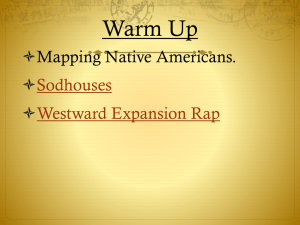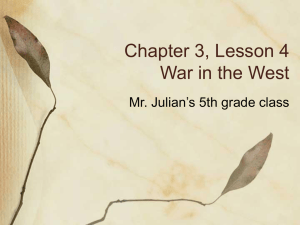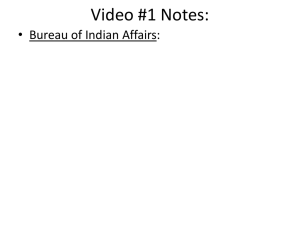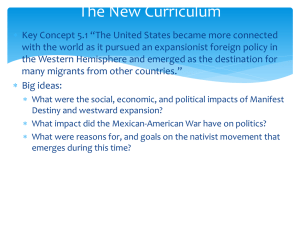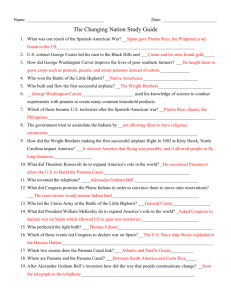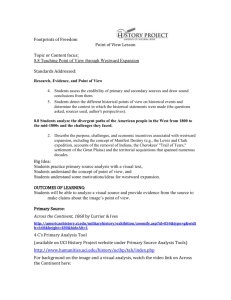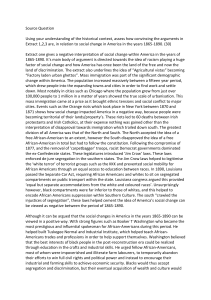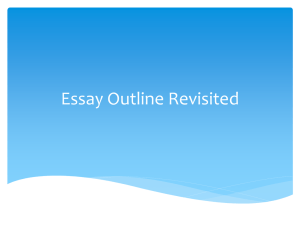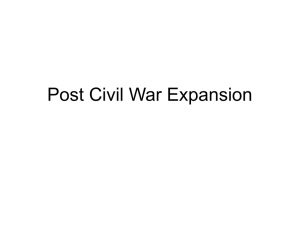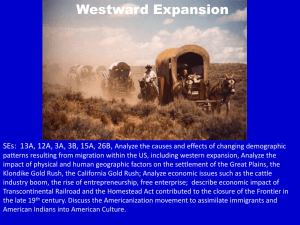Westward Expansion & Native Americans: Impact & Key Figures
advertisement
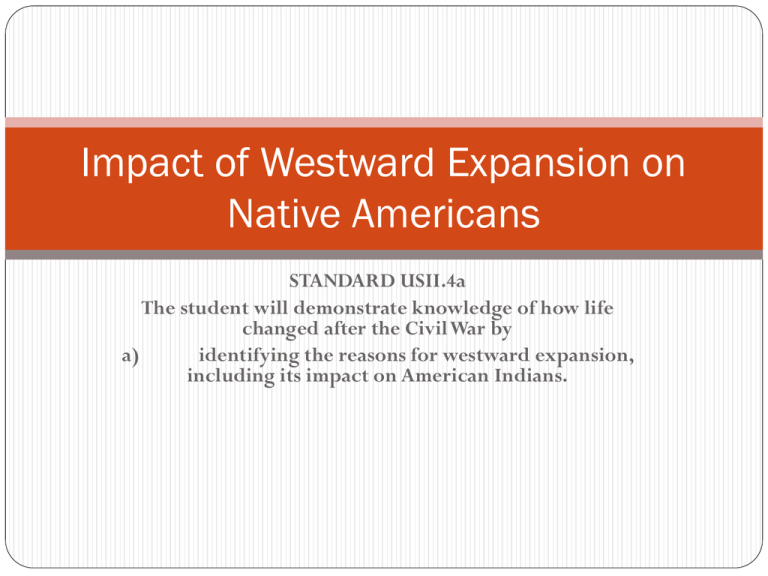
Impact of Westward Expansion on Native Americans STANDARD USII.4a The student will demonstrate knowledge of how life changed after the Civil War by a) identifying the reasons for westward expansion, including its impact on American Indians. Essential Vocabulary Assimilation- changing your ways to fit in somewhere else or to live by the rules of a place Expansion- growing bigger Forced relocation- making a group of people leave their homes and go somewhere else, commonly done to Native American tribes Essential Vocabulary Lifestyle- the way someone lives their life; their home, food, music, culture Opposition- to fight against Population- the number of people in an area Essential Vocabulary Reservation- land set aside for Native Americans Treaty- an agreement between two or more governments or groups of people Vocabulary Review Define “opposition”. What term means “land set aside for Native Americans”? What term means “changing your ways to fit in”? Essential Question How did the lives of American Indians change with western expansion? Essential People Sitting Bull- a leader of the Lakota Sioux who defeated Gen. Custer at the Battle of Little Big Horn, but was later killed by the U.S. Army Essential People Gen. Custer- Civil War leader best known for his defeat at the Battle of Little Bighorn, which is often called Custer’s Last Stand Essential People Geronimo- an Apache warrior who fought against the Mexican and American armies to protect his tribes land. He finally surrendered late in his 70s and became famous for his courage. Essential People Nez Perce- A northwestern tribe who tried to escape forced relocation by following their leader, Chief Joseph Essential People Chief Joseph- leader of the Nez Perce people during their attempted escape from forced relocation. He was forced to surrender just short of the Canadian border and was never allowed to return to his home. People Review Who led the winning side at the Battle of Little Bighorn? Who led the losing side of the Battle of Little Bighorn? Who tried to lead his people, the Nez Perce, to freedom? Who was the Apache leader known for his bravery? Essential Knowledge What was the impact of westward expansion on Native Americans? Violent opposition by American Indians to westward expansion (Battle of Little Bighorn, Sitting Bull, Geronimo) What was the impact of westward expansion on Native Americans? Forced relocation from traditional lands to reservations (Chief Joseph, Nez Percé) Mini Review Which Native American victory is also known as “Custer’s Last Stand”? Which man tried to lead his people to freedom, but was forced to surrender near the Canadian border? What was the name of the tribe of the above mentioned man? What was the impact of westward expansion on Native Americans? Reduced population through warfare and disease (Battle of Wounded Knee) What was the impact of westward expansion on Native Americans? Assimilation attempts and lifestyle changes (e.g., reduction of buffalo population) What was the impact of westward expansion on Native Americans? Reduced their homelands through treaties that were broken Final few The killing of what animal led to the downfall of many Native American tribes? The breaking of what led to the reduction of the homelands many Native American tribes?
